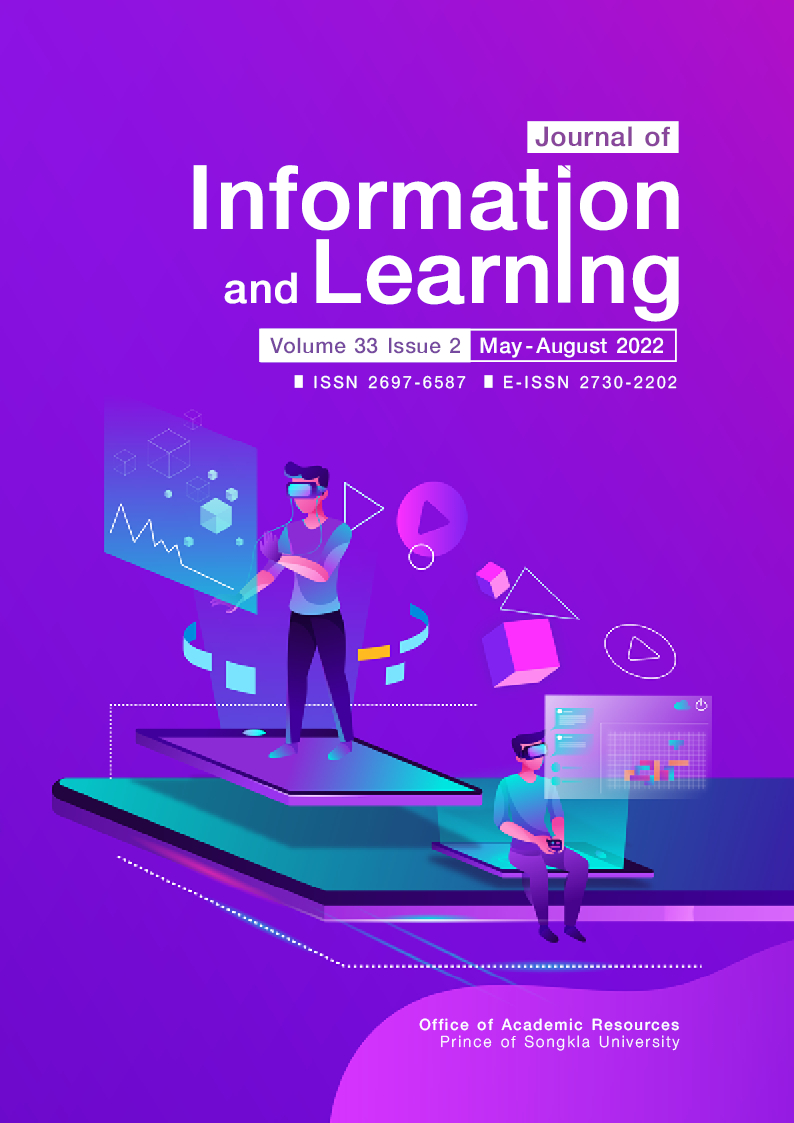Building a Bridge: Preparing Student Teachers’ Instructional Competence through School Integrated Learning (SIL)
Main Article Content
Abstract
Promoting and supporting student teachers to have the opportunity to learn and have experiences in real schools and classrooms as work-integrated learning (WIL) can help them develop compliance competencies. This article focuses on identifying student teachers’ instructional competency and a developing School Integrated Learning (SIL) process to enhance their competency by conducting a study with 191 second year undergraduate student teachers enrolled at the Faculty of Education at a university located in northeast Thailand, 8 teacher educators, and 11 school mentors who work in Professional Development Schools (PDSs). The result revealed that student teachers’ instructional competencies consisted of 13 indicators in three domains: student-oriented instructional design, implement and practice of diverse teaching strategies and assessment of student learning and self-learning. All competencies can develop through SIL process; PROACTIVE is an acronym for preparation, recap the lessons learnt, observe the classroom, apply knowledge, create a lesson plan, teaching in the classroom, identify student learning, visit other classrooms and evaluate self competency. A strong relationship between educators, school mentors and student teachers as PLC members through SIL is the key of the process proposed and their sharing-reflection can help student teachers improve their instructional competency.
Article Details

This work is licensed under a Creative Commons Attribution-NonCommercial-NoDerivatives 4.0 International License.
The Journal of Information and Learning is operated by the Office of Academic Resources, Prince of Songkla University. All articles published in the journal are protected by Thailand copyright law. This copyright covers the exclusive rights to share, reproduce and distribute the article, including in electronic forms, reprints, translations, photographic reproductions, or similar. Authors own copyrights in the works they have created as well as the Office of Academic Resources. The Journal reserves the right to edit the language of papers accepted for publication for clarity and correctness, as well as to make formal changes to ensure compliance with the journal's guidelines. All authors must take public responsibility for the content of their paper.
References
Brookfield, S. D. (2012). Critical theory and transformative learning. In Taylor, E. W., & Cranton, P.(Ed.), The handbook of transformative learning: Theory, research, and practice (pp. 131-146). Jossey-Bass.
Creswell, J. W. (2014). Research design: qualitative, quantitative and mixed methods approaches (4th ed.). Sage.
Darling-Hammond, L. (2000). Teacher quality and student achievement. Education Policy Analysis Archives, 8, 1.
Hay, K. (2020). What is quality work-integrated learning? Social work tertiary educator perspectives. International Journal of Work-Integrated Learning, 21(1), 51-61.
Hay, K., & Brown, K. (2015). Social work practice practicums in Aotearoa New Zealand: Agency managers’ perspectives. Social Work Education, 34(6), 700-715.
Kazeni, M., & McNaught, C. (2020). Using group discussion and reflection for developing student teacher autonomy. International Journal of Work-Integrated Learning, 21(1), 1-12.
Kline, P. (2014). The new psychometrics: science, psychology and measurement. Routledge.
Meyer, T. (2002). Novice teacher learning communities: an alternative to one-on-one mentoring. American Secondary Education, 31(1), 27-42.
Mishra, P., & Koehler, M. J. (2008). Introducing technological pedagogical content knowledge. In annual meeting of the American Educational Research Association, 1-16.
Murray-Harvey, R. T., Slee, P., Lawson, M. J., Silins, H., Banfield, G., & Russell, A. (2000). Under Stress: The concerns and coping strategies of teacher education students. European Journal of Teacher Education, 23(1), 19-35.
National Council for Accreditation of Teacher Education (NCATE). (2010). Transforming teacher education through clinical practice: A national strategy to prepare effective teachers (Report of the Blue Ribbon Panel on clinical preparation and partnerships for improved student learning). NCATE.
Niess, M. L., Ronau, R. N., Driskell, S. O., Kosheleva, O., Pugalee, D., & Weinhold, M. W. (2008). Technological pedagogical content knowledge (TPCK): Preparation of mathematics teachers for 21st century teaching and learning. Inquiry into mathematics teacher education (Association of Mathematics Teacher Educators [AMTE] Monograph 5), 143-156.
Seashore, K. R., Anderson, A. R., & Riedel, E. (2003, January). Implementing arts for academic achievement: The impact of mental models, professional community and interdisciplinary teaming [Paper presented]. The Seventeenth Conference of the International Congress for School Effectiveness and Improvement, Rotterdam.
Slater, T. F. (1995). A qualitative and quantitative comparison of the impact of portfolio assessment procedures versus traditional assessment in a college physics course [Paper presented]. The Annual Meeting of the National Association for Research in Science Teaching, San Francisco, CA. (ERIC Reproduction Document No. 391835).
The Office of the Education Council of Thailand. (2013). Research report: Teacher competency and teacher development guidelines in a changing society. ONEC.
Zeichner, K. (2010). Rethinking the connections between campus courses and field experiences in college and university-based teacher education. Journal of Teacher Education, 61(1-2), 89-99.
Zegwaard, K. E., Johansson, K., Kay, J., McRae, N., Ferns, S., & Hoskyn, K. (2019). Professional development needs of the international work-integrated learning community. International Journal of Work-Integrated Learning, 20(2), 201–217.


